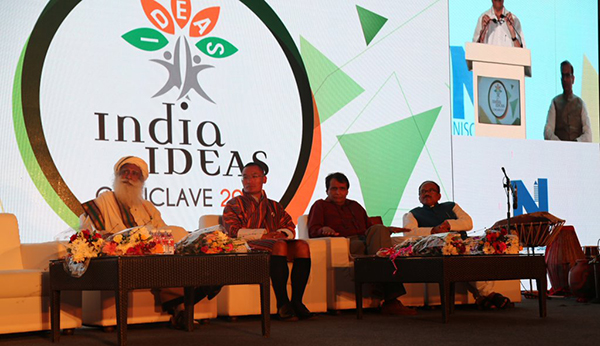 In a world driven by extreme consumerism, there is a pressing need for spirituality and development models based on happiness, Prime Minister, Tshering Tobgay said at the second edition of the India Idea Conclave in Goa.
In a world driven by extreme consumerism, there is a pressing need for spirituality and development models based on happiness, Prime Minister, Tshering Tobgay said at the second edition of the India Idea Conclave in Goa.
Themed “Learnings from civilizations,” Lyonchhen Tshering Tobgay said there were things to learn or rather unlearn from our civilizations.
Lyonchhen was speaking to various participants including the Goa’s Chief Minister, Laxmikant Parsekar, Union Minister of Defense, Manohar Parrikar, and Minister of Railways, Suresh Prabhu.
He said, among the civilization, the Indus valley civilization had many things to offer to the world including, different forms of religion that have today co-existed in harmony. The Indus valley civilization also gave the world, the binary number and yoga, which is the world’s greatest civilization.
“I will give you my reasons, one, the Indus valley civilization is the birthplace of most number of major religion in the world, Sikhism, Jainism, Buddhism, and Hinduism.” Lyonchhen said these religions have co existed in harmony, borrowing, lending and complementing one another.
Interjected by applauses from the audience, Lyonchhen said, today, the world was facing problems fueled by overconsumption and over extraction.
He said there was a need for an inclusive and sustainable development model.
“Today we over consume, and to over consume we have to overproduce, and over extract. This is not a sustainable model for human kind. And consumption at this scale can no longer be sustainable, not sustainable for human kind and not sustainable for mother earth.”
The Prime Minister said there is a need for a way out.
“We need an alternate model. We need to go back to the basics. We need to learn from our civilizations. We need to remember the purpose of civilization, and that is to create good societies, just societies, societies that would enable the people to pursue well being and happiness.”
Lyonchhen said Bhutan was making huge strides in environmental protection. Once Bhutan taps 3,000 megawatt of hydropower, it would have offset around 17 million tonnes of carbon dioxide a year in India. By the time, Bhutan generates 30,000 megawatt of hydropower; it would have offset 112 million carbon dioxide annually.












